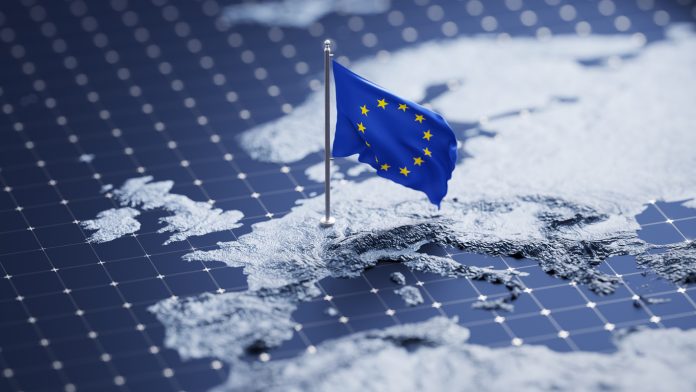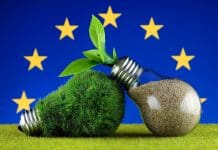Open Access Governments provides a EU environment and climate policy update. Here, we explore the latest from the European Commission’s Directorate General for the Environment and the Directorate-General for Climate Action
This update emphasises the importance of European Union (EU) environmental laws for prosperity, discusses a ‘Roadmap towards Nature Credits’ to boost private investments in nature protection, and outlines efforts to transition to a circular economy, including the upcoming Circular Economy Act and the European bathing water assessment for the 2024 season.
Additionally, we review an amendment to the EU Climate Law, which sets a 2040 target for a 90% reduction in net greenhouse gas emissions from 1990 levels, with a focus on mitigating climate change and achieving energy independence.
EU environment and climate policy overview
The Directorate-General for Environment (DG-ENV) is responsible for leading the European Commission’s development and implementation of environmental policy. Its mission is to protect, preserve, and enhance the environment for both current and future generations while promoting sustainable development.
A key objective is to realise the EU’s long-term vision: a world where citizens thrive within the planet’s ecological limits. This vision includes fostering an innovative, circular economy that protects and restores biodiversity and ecosystems while minimising pollution and health risks related to the environment.
The leadership team includes Jessika Roswall, the Commissioner for Environment, Water Resilience, and a Competitive Circular Economy, and Eric Mamer, the Director-General. (1) As the Commissioner, Roswall is responsible for leading efforts to safeguard our natural environment and promote a circular economy. Roswall focuses on promoting incentives, investment, and practical implementation to ensure the EU stays on track with the goals articulated in the European Green Deal.
Commissioner Roswall’s responsibilities include spearheading the European Water Resilience Strategy to bolster water security across Europe, ensuring that the EU meets its international biodiversity commitments under the Kunming-Montreal Agreement, advocating for an ambitious global plastic treaty, supporting the implementation of the High Seas Treaty, advancing the zero-pollution ambition, and working on the new chemicals industry package. (2)
The EU acknowledges the benefits of plastics, recognising them as a valuable product that will continue to be necessary. However, the EU opposes plastic pollution. “It is time to end new plastic pollution as quickly as possible and help clean up the existing pollution that is choking our seas, getting into our food, and invading our bodies,” Commissioner Roswall urged in August.
Addressing this issue is a global responsibility that cannot be tackled by any single country alone, Commissioner Roswall added. Indeed, an effective treaty is essential to meet the growing demands of citizens not only within the EU but also worldwide. Furthermore, businesses that operate across borders require a clear global framework to guide their activities. “The world is already moving towards a modern, competitive, and circular economy,” Commissioner Roswall added. (3)
The importance of EU environmental laws
On 7th July 2025, the Commission released the fourth Environmental Implementation Review, highlighting the importance of EU environmental laws for prosperity and competitiveness. The costs of non-implementation, due to pollution and waste, are estimated at €180 billion annually, around 1% of the EU’s GDP.
The review summarises trends across the 27 EU Member States regarding air, water, and nature quality and outlines specific priority actions for improvement. Key findings include:
Circular economy: While some Member States are making progress in resource efficiency, many are at risk of missing their 2025 recycling targets and need to enhance their efforts in waste prevention and landfill rehabilitation.
Water: Urgent action is required to achieve EU goals for freshwater quantity and quality, addressing water scarcity, with improved utilisation of EU funds for urban wastewater treatment.
Biodiversity: Biodiversity loss continues due to agricultural practices, necessitating improved integration of nature protection into other policies.
Air pollution: High levels of air pollutants pose a significant threat to public health. Improvements can come from promoting sustainable mobility, enhancing energy efficiency, and optimising agricultural practices.
Climate: Adaptation efforts must be intensified to mitigate the impacts of climate change. While the EU has successfully decoupled greenhouse gas emissions from economic growth, many Member States are struggling to implement the emission trading system for buildings, road transport, and small industries.
The Commission has made approximately €122 billion available annually for environmental investments. Still, many Member States need to improve the utilisation of funds and enhance public access to courts for environmental challenges.
“Investing in the implementation of environmental law is very good value for money. This is a timely reminder that implementation and competitiveness go hand in hand to protect our environment and the resources we need for the transition and for future generations,” Commissioner Roswall said. (4)
Nature Credits Roadmap
On 7th July 2025, the European Commission introduced a ‘Roadmap towards Nature Credits’ to encourage private investments in nature protection and preservation. This plan rewards those who take action to protect the environment. Since three-quarters of businesses in the euro area rely on natural resources, nature credits offer a new way to value these assets and attract investors.
Nature credits benefit businesses and the environment by supporting biodiversity, protecting habitats, and generating revenue for conservation efforts. They create income opportunities for foresters, farmers, fishers, landowners, and communities, allowing them to restore ecosystems. A diverse range of potential buyers includes private companies, financial institutions, public entities, and small investors.
“With this roadmap, we are taking a bold step to recognise nature as a strategic asset for Europe’s future. Nature credits have the potential to attract essential private investment, while also rewarding those who are the custodians of our land and seas, including farmers, foresters and local communities. Our goal is clear: working hand in hand with nature and turning this into an opportunity for a resilient and competitive economy,” Commissioner Roswall explained. (5)
Advancing the circular economy
On 2nd July 2025, the Commission launched several initiatives aimed at accelerating the EU’s transition to a circular economy and laying the groundwork for the introduction of the Circular Economy Act, which is expected in 2026.
The forthcoming Act will support the EU’s ambitions outlined in the Clean Industrial Deal, and the Competitiveness Compass, which aim to double the share of recycled materials in the EU economy and position the EU as a global leader in the circular economy by 2030.
Among the initiatives adopted are an evaluation of legislation related to electronic waste and new rules governing waste shipments. These measures address various aspects of the circular economy and will help accelerate the transition while enhancing the implementation of existing regulations.
For instance, the Commission will implement a Digital Waste Shipment System, allowing companies to shift from paper-based to digital procedures for shipping waste across the EU single market. This change aims to reduce administrative burdens and improve competitiveness.
Feedback from the dialogue on 2nd July 2025, along with insights from consultations and the evaluation of the WEEE Directive, will inform the development of the Circular Economy Act and advance the EU’s shift toward a circular economy.
“We need to seize the transition to a circular economy as an opportunity for Europe to lead in innovation and competitiveness, and high environmental standards. As we shape the Circular Economy Act, we want input from businesses, citizens and other stakeholders to embed circularity across our society and economy,” Commissioner Roswall urged. (6)
European bathing water assessment
In other news, a new report on swimming safety in Europe reveals that the majority of bathing spots are safe for use. The assessment for the 2024 bathing season found that over 85% of monitored locations met the EU’s highest ‘excellent’ quality standards last year. Additionally, 96% of all officially identified bathing areas in the EU met the basic quality standards.
The report examined over 22,000 bathing sites across all 27 EU Member States, as well as Switzerland and Albania. In five countries – Austria, Bulgaria, Croatia, Cyprus and Greece – 95% or more of bathing waters were rated as having excellent quality. Only 1.5% of the EU’s bathing waters were poor.
Bathing water quality in Europe has significantly improved over the past few decades, thanks to EU regulations. Systematic bacteriological monitoring and significant investments in urban wastewater treatment plants have significantly reduced the release of pathogens into the environment.
While most bathing waters in Europe are safe from germs, chemical pollution in rivers and lakes remains a problem and may worsen with climate change. For this reason, it is vital to protect water quality for both people and the environment. (7)
Climate action policy overview
As our EU policy analysis progresses, we now examine the Directorate-General for Climate Action (DG CLIMA), which spearheads the European Commission’s efforts to combat climate change. It develops policies to help the EU achieve its 2030 climate targets and net-zero greenhouse gas emissions by 2050, promoting clean growth and ensuring a socially fair transition for all citizens.
DG CLIMA promotes initiatives to prepare the EU for increasing climate-related risks, thereby enhancing societal resilience and protecting both people and prosperity. It collaborates with partners worldwide to encourage and support climate action in other regions and countries.
The leadership of DG CLIMA includes Executive Vice-President Teresa Ribera, Commissioner for Climate, Net Zero, and Clean Growth, Wopke Hoekstra, and Director-General Kurt Vandenberghe. (8)
Commissioner Hoekstra is responsible for ensuring the EU meets its climate commitments in a fair manner that also promotes economic growth and supports industry. Additionally, he is tasked with strengthening the EU’s climate diplomacy through collaboration with global partners.
Commissioner Hoekstra’s responsibilities include proposing to enshrine a 90% emission-reduction target for 2040 in the European Climate Law, supporting the implementation of the Innovation Fund to mobilise investments in clean technologies, and enhancing Europe’s climate diplomacy and its leading role in international negotiations. (9)
EU’s Climate Law offers a new approach for achieving goals by 2040
On 2nd July 2025, the European Commission proposed an amendment to the EU Climate Law, introducing a new climate target for 2040 that aims for a 90% reduction in net greenhouse gas (GHG) emissions compared to 1990 levels.
This initiative is designed to provide certainty for investors, promote innovation, strengthen industrial leadership, and enhance Europe’s energy security. It builds on the existing goal of reducing GHG emissions by at least 55% by 2030.
The proposal adopts a more flexible and pragmatic approach to achieving its goals, with the ultimate aim of creating a decarbonised European economy by 2050. It aligns with the EU Competitiveness Compass and the Clean Industrial Deal, taking into account the current economic and geopolitical landscape, and providing the stability necessary for a clean energy transition.
By pursuing decarbonisation, the EU aims to boost investment, create jobs, and enhance resilience to climate change. This proposal will be submitted to the European Parliament and the Council for discussion and adoption.
“With our 2040 target, we are staying the course on the clean transition. We know why we’re doing it – for economic, security and geopolitical reasons. And we have a plan for how to make it work – a strong enabling environment, the Clean Industrial Deal and three impactful flexibilities. It gives industry and Member States a clear direction and supports their investment plans, while ensuring that Europe stays firmly on track to reach climate neutrality by 2050. It will be good for EU citizens, businesses and our global competitiveness. It’s also an important tool in the EU’s international diplomacy work to cut emissions and develop carbon markets under the Paris Agreement,” Commissioner Hoekstra said. (10)
Addressing climate change and promoting energy independence
A large majority of Europeans, 85%, consider climate change a serious problem, according to a recent Eurobarometer survey.
Additionally, 81% support the EU-wide goal of achieving climate neutrality by 2050. More than three-quarters (77%) believe that the costs associated with climate change far exceed the investments needed for a net-zero transition. Eighty-five per cent agree that tackling climate change should be a priority for improving public health and quality of life, and 83% feel that better preparation for its adverse effects will benefit EU citizens.
Nearly 38% of respondents feel personally exposed to climate-related risks, with over half of citizens in eight Member States, particularly in Southern Europe, sharing this concern. While 92% of EU citizens are taking individual climate action, only 28% believe they can make a significant impact through personal efforts. Most identify national governments (66%), the EU (59%), and businesses (58%) as those best positioned to address climate change.
The EU has taken a leadership role in climate action with comprehensive policies aimed at reducing emissions and promoting sustainability. It has set binding targets for 2030 and aims for climate neutrality by 2050.
Recent initiatives, such as the Clean Industrial Deal and the Affordable Energy Action Plan, focus on enhancing competitiveness, innovation, and energy security. As the EU plans to amend its Climate Law and introduce a new Climate Adaptation Plan next year, it remains committed to achieving climate neutrality through innovation and shared prosperity.
“This survey shows Europeans are worried about climate change and want concrete and bold actions. Their strong support for EU initiatives, from clean energy to industrial innovation, is a powerful mandate to continue delivering a fair, secure, and competitive transition to climate neutrality. Our policies are helping turn that shared ambition into action across Europe. Our job as politicians and policy makers is to harness this support and ensure that we encourage and shape a transition which is fair for our citizens and good for our economy, society and security,” Commissioner Hoekstra said. (11)
Environment and climate: EU policy outlook
This update highlights the significance of EU environmental laws for prosperity and introduces a ‘Roadmap towards Nature Credits’ to encourage private investment in nature. It covers the transition to a circular economy, including the Circular Economy Act and the 2024 bathing water assessment, and an amendment to the EU Climate Law targeting a 90% reduction in net greenhouse gas emissions by 2040.
We wish the European Commission’s Directorate General for Environment and Directorate General for Climate Action success in their work during the 2024- 2029 Commission. Their efforts in promoting effective environmental and climate policies are essential for sustainable practices and tackling urgent global challenges. We anticipate seeing the positive outcomes of their initiatives in the coming years.
References
- https://commission.europa.eu/about/departments-and-executive-agencies/
environment_en - https://commission.europa.eu/about/organisation/college-commissioners/
jessika-roswall_en - https://ec.europa.eu/commission/presscorner/detail/en/statement_25_1960
- https://ec.europa.eu/commission/presscorner/detail/en/ip_25_1747
- https://ec.europa.eu/commission/presscorner/detail/en/ip_25_1679
- https://ec.europa.eu/commission/presscorner/detail/en/ip_25_1710
- https://ec.europa.eu/commission/presscorner/detail/en/ip_25_1574
- https://commission.europa.eu/about/departments-and-executive-agencies/
climate-action_en - https://commission.europa.eu/about/organisation/college-commissioners/
wopke-hoekstra_en - https://ec.europa.eu/commission/presscorner/detail/en/ip_25_1687
- https://ec.europa.eu/commission/presscorner/detail/en/ip_25_1376











